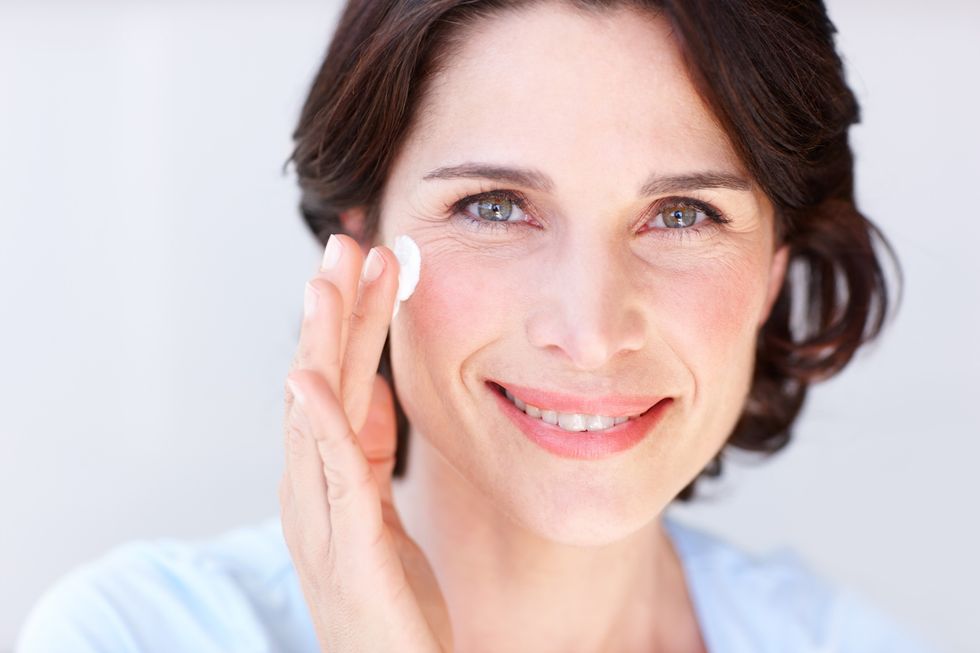'I've been a skin specialist for over a decade – here's how to banish dryness for good'

Maintain a strong skin barrier by using the best ingredients and staying hydrated
Don't Miss
Most Read
Latest
Dry, flaky skin can be caused by several factors, with some of the main culprits being age, adverse weather conditions, and poor product use.
But a soft, supple complexion is totally achievable if you learn the right tricks. According to skin expert and cosmetic chemist Dr Leanne King, a "holistic" approach is required.
The specialist spoke exclusively to GB News about what is causing your rough, cracked complexion, plus the easy ways to combat it.
With more than 10 years of experience in the field, she has discovered the best lifestyle habits and most important skin care ingredients for lasting results.
TRENDING
Stories
Videos
Your Say
What causes dry skin?
Dr King, founder of Beauty Favours, explained that a "disrupted skin barrier" is the reason for your skin woes.
She said: "The outermost layer of the skin is called the stratum corneum, which is composed of dead skin cells within a lipid layer.
"When the skin's barrier is disrupted, this lipid layer is reduced, and it loses its ability to retain moisture.
"This leads to increased transepidermal water loss (TEWL), causing the skin to become dry."
Several factors can adversely affect the skin's barrier, including "harsh weather and harsh products". Certain medical conditions and natural ageing can also play a part.
LATEST DEVELOPMENTS:

Hydrate your skin 'from within' by drinking plenty of water
| GETTY IMAGESHow does ageing exacerbate dry skin?
The specialist explained that as we age, sebum production decreases in response to hormonal changes.
"When lipid production in the skin is reduced, we get increased water loss and dryness," she said.
Consultant dermatologist Dr Paul Farrant added that over time, the body also experiences a decline in ceramides (lipids that help maintain a strong skin barrier), making the skin "more prone to dryness, roughness, and sensitivity".
Further compounding the issue, the body's levels of hyaluronic acid (a powerful humectant which binds to and holds water molecules) also deplete over time.

Serum, moisturiser, and SPF are all skin care saviours if you're dealing with dryness
| GETTY IMAGESCan the weather make it worse?
As we experience the dramatic shift from summer to autumn, it's important to note that cooler temperatures and low humidity make for drier air.
The Harley Street Dermatology Clinic warned that this transition can "wreak havoc" on the skin, worsening several skin conditions, such as acne, eczema, and psoriasis.
"Additionally, increased indoor heating and fluctuating temperatures can strip your skin of moisture, leaving it feeling tight and uncomfortable," the skin gurus added.
To enjoy soft, beautiful skin during the cooler months, adjusting your regimen is necessary.
How can I combat dry skin?
To tackle dryness, a multifaceted approach is key. Dr King recommended staying hydrated "from within" by drinking plenty of water and eating healthy foods that "provide nutrients and keep the skin healthy".
Among the most hydrating foods are cucumbers, iceberg lettuce, celery, radishes, tomatoes, strawberries, and watermelon.
As for skin care, your routine should include a gentle cleanser to avoid stripping any natural oils, rinsed off with lukewarm water to avoid stripping the skin. Those conscious of dryness should always pat their face dry rather than rubbing it with a scratchy flannel.
"The skin should not feel tight or dry after cleansing," the expert added.
After cleansing, skin care enthusiasts are advised to use a serum or face oil that contains moisturising ingredients, followed by a hydrating moisturiser.
While it's most important in the summer when UV tends to be high, the specialist stressed that SPF 30 should be applied "daily".
Recommending her favourite ingredients for dry skin, Dr King hailed glycerine, hyaluronic acid, jojoba oil, and squalane as top choices because they "mimic the skin's natural oils".











